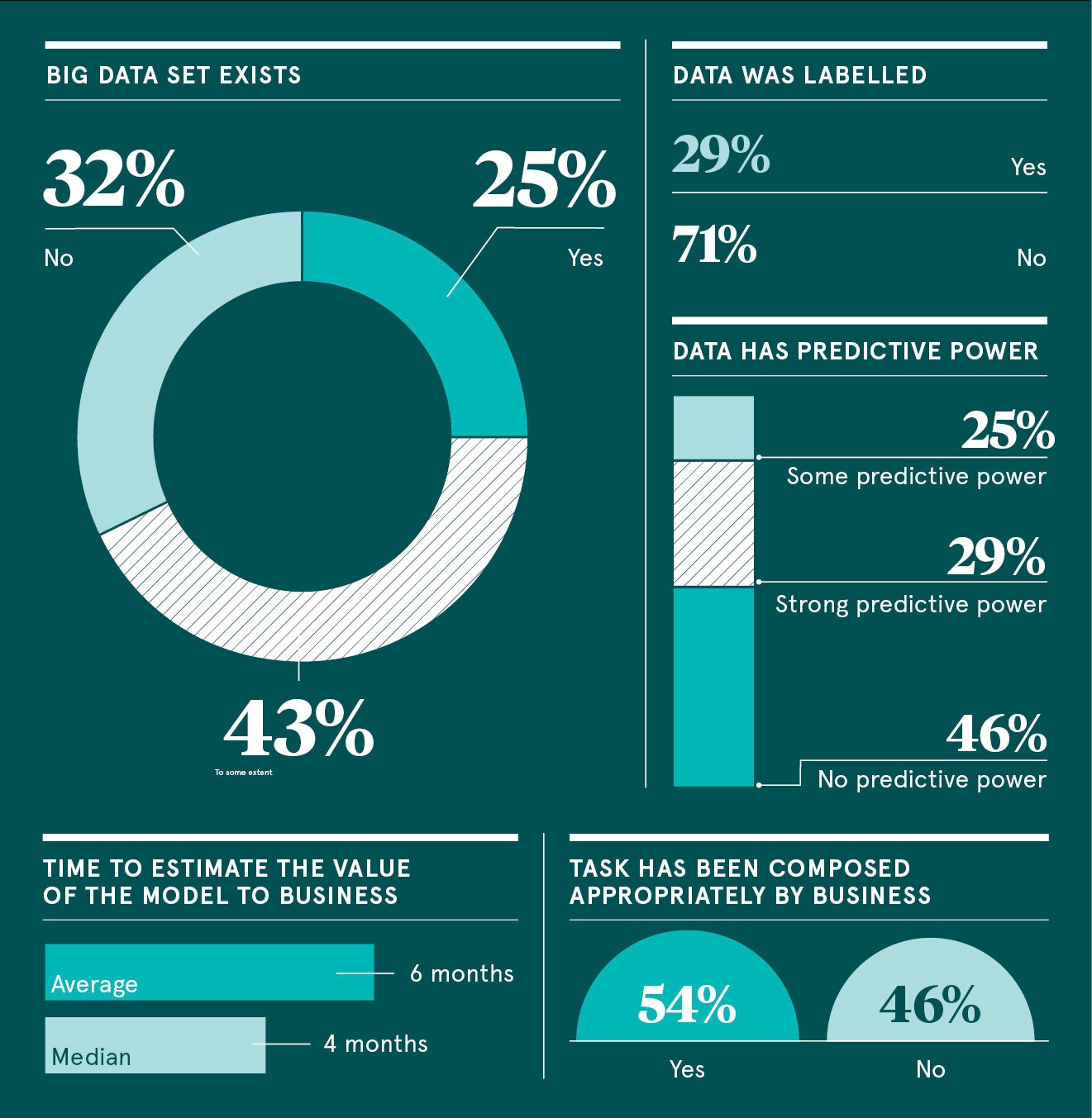 Thanks in part to growing computational power, firms are able to carry out trials with innovative tools backed by artificial intelligence (AI) and uncover exciting use-cases that were not achievable in the recent past.
Thanks in part to growing computational power, firms are able to carry out trials with innovative tools backed by artificial intelligence (AI) and uncover exciting use-cases that were not achievable in the recent past.
“It’s clear that AI will fundamentally change how human beings live. At the moment we are in an experimental period, when a lot of companies and leaders are testing AI to see its true value,” says Alexey Tsyvunchyk, chief technology officer of InData Labs, a leading data science services provider. “Some of these projects will not survive, but the ones that do will have a substantial impact on virtually all industries.”
According to research from Gartner, 85 per cent of the interactions customers have with businesses will be handled without any human element by 2020. This radical shift will reduce costs for companies and enable employees to undertake more complicated tasks that require human intelligence.
“Adopting AI and machine-learning (ML) will provide you with the tools to optimise costs by learning from previous business experience in an automated way. It’s possible to create new models inside your company that learn from historical data and make accurate predictions on the future of the business,” says Mr Tsyvunchyk.
There are literally hundreds upon hundreds of potential applications of AI tools that have the ability to upend traditional processes and business models. For example, InData Labs developed a natural language processing (NLP) solution for an international games developer that helped them quickly and accurately analyse customer feedback from YouTube and online forms, which was a major improvement on the previous manual processes.
The first step before a business moves forward with any type of AI initiative should be to define what the exact business problem is that AI is attempting to resolve.
“AI is not a magic solution that will fix all of your problems; it has to be targeted at specific challenges. It’s best suited to the automation of routine activities or obtaining insights from a large volume of historical data, which is sometimes difficult for human beings to understand and process,” says
Mr Tsyvunchyk.
The conversation around AI and ML has already developed from its initial hype-based discussion into a search for how to uncover practical solutions. Yet not all businesses will be ideal candidates for advanced AI solutions as the data they hold may not be appropriate for these tools to be effective.
“We had a case where we were approached by a mobile fitness company to assist them in creating a personal assistant that would provide personalised recommendations to the user to help them lose weight. They did have a dataset, but they had not collected a user’s height, making it impossible to compute BMI, which is the key indicator in this solution,” says Mr Tsyvunchyk.
In some cases, the lack of certain data may make it impossible or extremely difficult to make an accurate prediction. It’s vital that as much relevant data as possible is collected before implementing an AI solution, as the end-results of any data-driven tool will rely heavily on the data input.
As the rapid growth of challenger firms such as Uber illustrates, disruption can come to any industry and firms that don’t implement AI solutions will be threatened by up-start competitors. The growing use of powerful AI tools in all manner of consumer applications, most notably by Netflix, Uber and Amazon, is increasing customer expectations and making it vital for all companies, no matter what industry they operate in, to embrace AI.
“Financial organisations, primary banks and debt collection organisations, will be able to predict their customers’ behaviour more precisely and apply a more personalised approach to each customer. For example, contacting them with advice and checking the creditworthiness of customers,” says Mr Tsyvunchyk.
Most aspects of customer service will be impacted by AI and related technologies with the management of customer interactions being improved through automation. Chatbots and virtual assistants, backed by NLP, can provide around-the-clock support to consumers with relevant advice as well as tailored product recommendations.
Artificial intelligence and machine-learning, in conjunction with big data processing technologies, uncover the possibility to personalise services for each individual user
Even traditional industries, such as the railway sector, can make use of sophisticated AI solutions. A train operating company approached InData Labs looking for help to improve the process customers have to go through to receive a refund after their train is cancelled.
“When there are multiple trains that had been cancelled, a lot of travellers would try to get the cost of their ticket reimbursed by sending a photo of the ticket to the train operator. Instead of wasting the time of staff by manually checking the ticket information, we recommended the client create a system that used computer vision, NLP, AI and robotic process automation to automate this process,” says Mr Tsyvunchyk.
This example of the ability of AI-based solutions to transform conventional business processes and operations saw important ticket details, including the customer’s name, destination and ticket number, extracted from the image and input into an internal system to reimburse automatically without human involvement.
“AI and ML, in conjunction with big data processing technologies, uncover the possibility to personalise services for each individual user. Businesses will be able to deliver the right message at the right time through the right channel by understanding customer needs and offering them the most appropriate products or services based on customer behaviour and historical data,” says Mr Tsyvunchyk.

But there remains a lack of understanding among many firms around how to incorporate AI tools into their operations and ensure they get the most value from these burgeoning technologies.
Embarking on an AI project can signal the start of an exciting new stage of development for companies. But for these often complex and elaborate ventures to be successful, partnering with a skilled AI expert can be vitally important.
InData Labs has substantial experience as a data science services supplier and works with firms that want to implement practical AI solutions in their business. By exploring the exact business areas where AI and ML services can have the most positive impact, InData Labs can establish a reasonable explanation on why the company is either suitable or not for these innovative tools.
“From performing an exploratory data analysis to building machine-learning models and integrating them into the company pipeline, and setting up an internal data science team, we help companies at every step of the AI and ML journey,” Mr Tsyvunchyk concludes.
For more information please visit indatalabs.com





